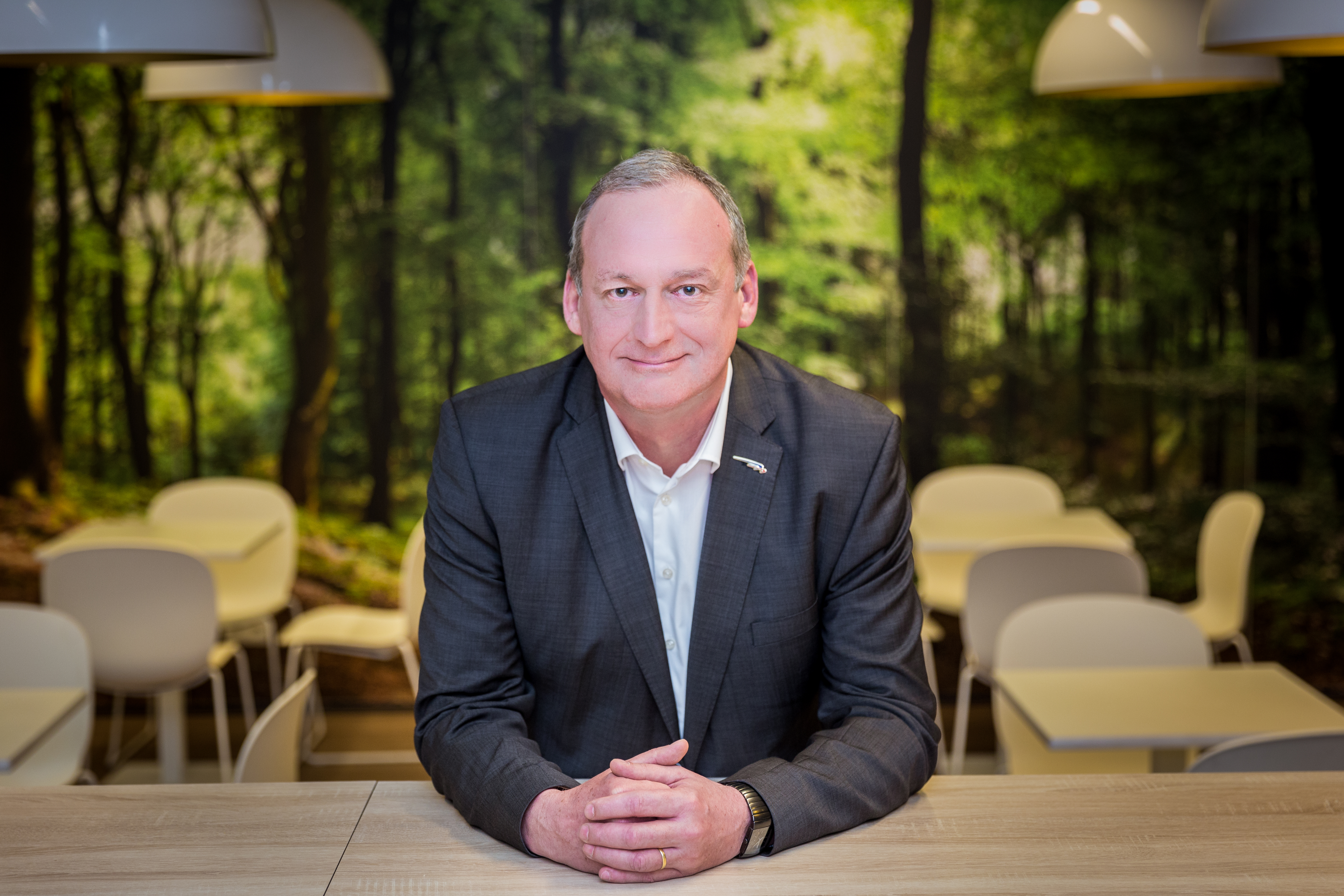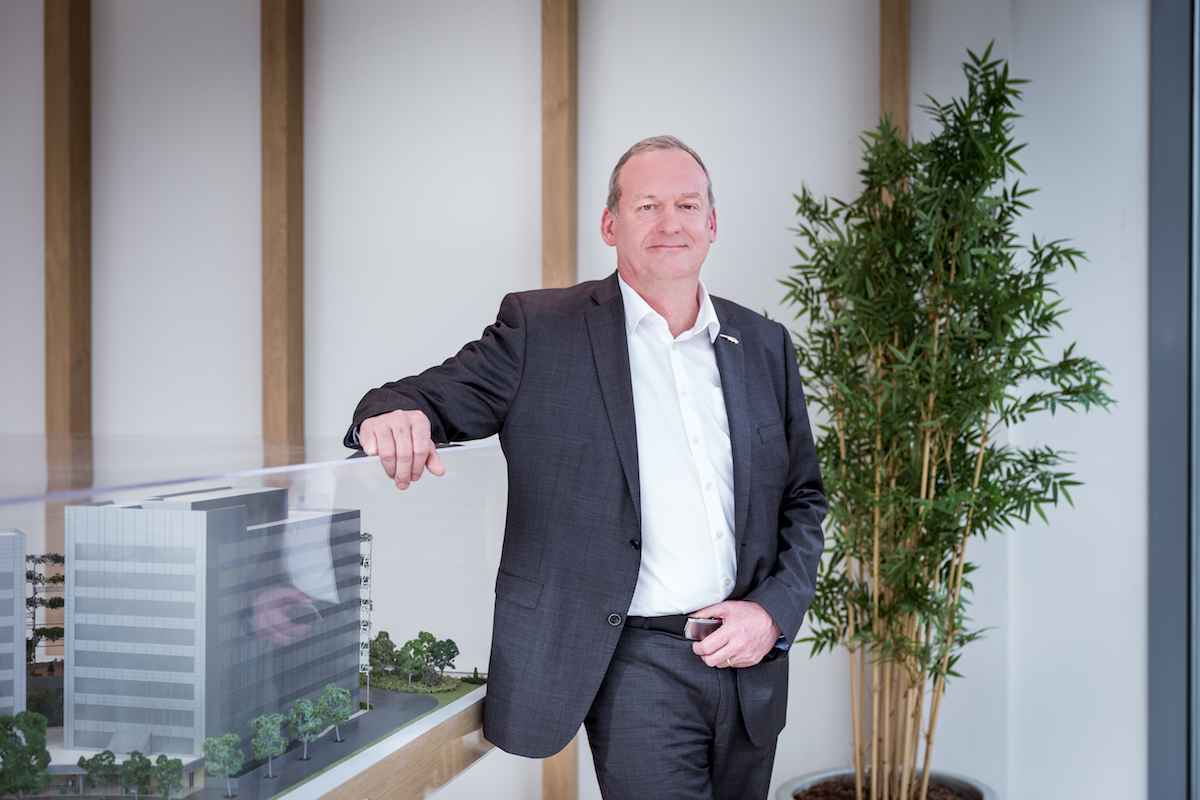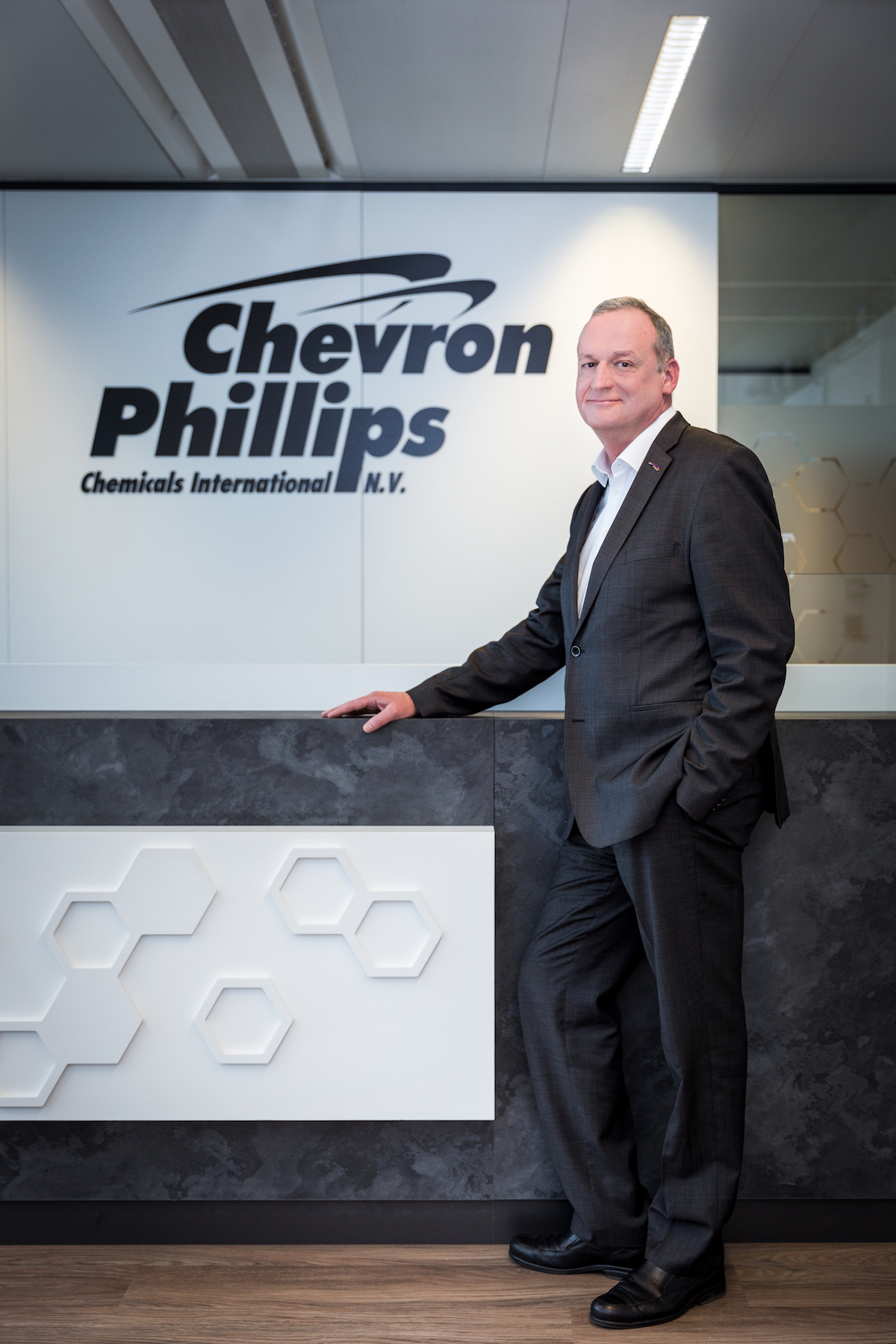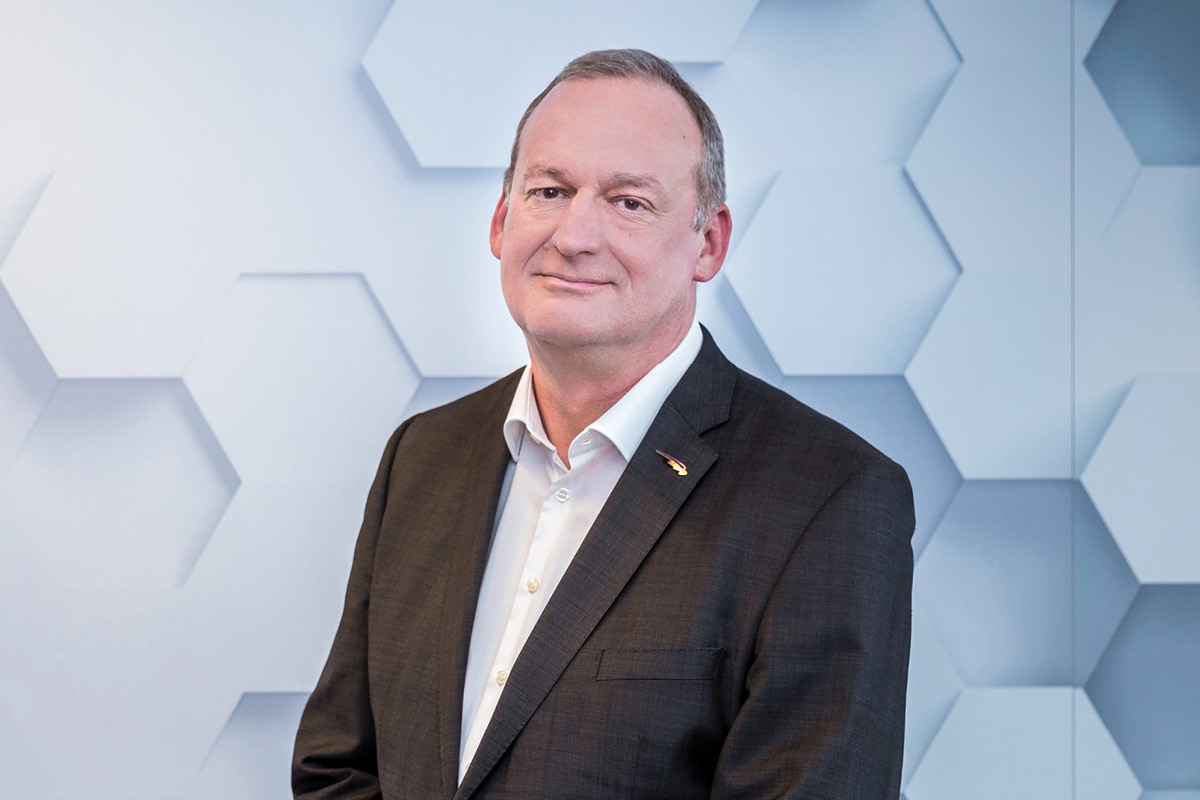The toss of a coin decided which name would come first, but that was all that was left to chance when the petrochemical arms of Chevron Corporation and Phillips Petroleum Company combined to form Chevron Phillips Chemical Company in 2000.
“If I look back at where the two companies found each other, I can say that at one end it was around positive synergies among the manufacturing assets,” explains Benny Mermans from the company’s EMEA headquarters in Diegem on the outskirts of Brussels.
“Chevron Corporation was a very strong stakeholder in alpha olefins, while Phillips Petroleum had a very strong position in polyolefins. Bringing these two businesses together made the new company a much bigger player in the ethylene value chain in particular.”
At the business end of the spectrum, Benny believes the entrepreneurial spirit and cost discipline of Phillips Petroleum complemented the corporate governance of Chevron Corporation to “create the perfect platform for a company that still exerts a can-do attitude, but within a governance frame that enables us to operate in a very reliable and compliant manner,” he says.

At the time of the merger, Benny, who joined Phillips Petroleum in 1990, was still involved in the engineering side of the business. By 2003, however, he had been promoted to EMEA general manager, a position he still holds.
Globalisation transformation
Benny happily admits to a career full of milestones, but those that come to mind first all share the same trigger: globalisation. He considers it the most significant transformation the industry has undergone since the first days of his career spent at Exxon Mobil. “Not only are our products being manufactured on a global scale but they are being moved globally as well,” he explains.
Today, Chevron Phillips Chemicals operates 33 manufacturing and research centres around the world, many in joint-venture partnerships, producing the essential chemical ingredients used in the manufacturing of more than 70,000 consumer and industrial goods across an array of markets, including building and construction, electronics, health care and medical, paint and coatings, and textiles.

To truly operate as a global supplier, you have to execute regionally.
Although the business was historically viewed as a strong player in Western Europe, Benny has overseen a series of significant expansion projects for Chevron Phillips Chemicals.
These include the establishment of bases in both Turkey and Poland as the company pursues an active growth strategy in Central and Eastern Europe, as well as further afield. “I do believe that to truly operate as a global supplier you have to execute regionally. We can geographically expand, but you can only do this when you want to be positioned locally as well,” he explains.
“The opening of our first Middle Eastern asset in the late-90s in Saudi Arabia was a real career highlight,” he says, adding that the Al-Jubail facility is responsible for producing over 1.1 million tonnes of polyethylene, 400,000 tonnes of polypropylene and 200,000 tonnes of polystyrene. “That was really a game-changer for our presence within the region,” he says.
Safety culture & sustainability
He appreciates that his industry is one that has an inherent image problem, but emphasises that Chevron Phillips Chemicals has always adopted an integrated approach to safety. “We have to ensure that all our assets are operated in the strictest and safest manner possible without any negative impact on our employees, the environment and the local communities.”

The chemistry of excellence is the mixture of 2 components: technology and diversity.
He also believes that continuing market regulation has enabled the company “to become a more responsible player in it,” he says. “Safety culture is part of our DNA; it’s something we have to own personally,” he continues. “We have a strong management system called Operational Excellence and this governs our ‘Journey to Zero’. We want to make sure that we eliminate high potential consequence incidents and ensure that we comply with all the laws and regulations in force.”
From ensuring assets are well maintained to promoting operational discipline – “encouraging our people to take personal accountability to improve individual safety performance,” he explains – “safety culture has to become a habit: one that is ingrained in our mind, in our body, in our entire wellbeing.”
Looking towards the future, Benny passionately advocates for an increased focus on sustainability – especially if the sector wants to remain competitive. “Policies which promote more expensive yet less reliable forms of renewable energy are really putting our industry in danger,” he says. He argues that, in Europe in particular, the industry needs to rally together to focus on continuing innovation, an area it has traditionally spearheaded.
“In order to remain more competitive and to shift more towards sustainable products, certain regulations must be loosened to allow for greater trade liberalisation. We also need to work in a more inclusive way – with our customers and with each other – to create sustainable solutions. After all, the role of our industry is to manufacture products that make everyday life better, globally,” he says. “The chemistry of excellence is the mixture of 2 components: technology and diversity,” Benny believes, and it’s a formula that Chevron Phillips Chemicals has demonstrably cracked.

